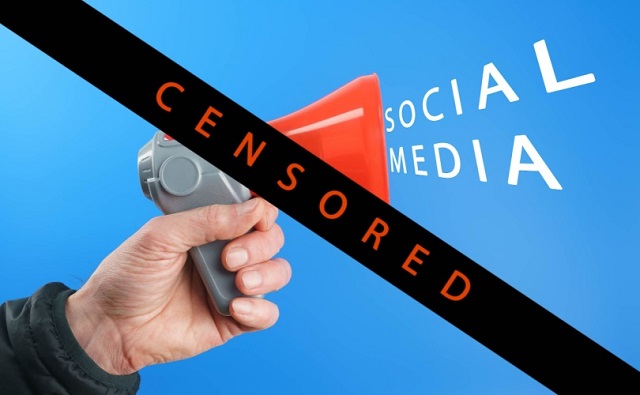Media
Canadians distrust federal ‘fact checkers,’ say they can identify truth without government help

From LifeSiteNews
The in-house research by the Communications Security Establishment found that Canadians distrusted federal ‘fact checkers’ and that they feel they can spot fake news online without being told what it true by the government.
Canadians believe they can identify “fake news” online without help from federally employed “fact checkers.”
According to in-house research by the Communications Security Establishment obtained March 19 by Blacklock’s Reporter, most Canadians distrust federal “fact checkers,” explaining that they can spot fake news online without being told what it true by the government.
“Everyone said they regularly see examples of disinformation online and felt it has escalated considerably in the last few years,” the report found. “Some spoke of social media as a place where they most often find disinformation.”
The participants in federal focus groups also revealed that they feel apprehensive with the government “declaring what is true or not.”
“Most participants said they feel confident they can tell the difference between real and false information you see on the internet, at least most of the time,” the report said.
“A number of participants expressed reservations about the government presenting itself as an ‘authority’ on disinformation,” it continued. “These participants perceived the Government of Canada would be declaring what is true or not.”
Recently, Canadians have increasingly expressed distrust in both the federal government and mainstream media.
Distrust in Prime Minister Justin Trudeau’s government comes as the scandal-plagued government has sent the Liberals into a nosedive in popularity with no end in sight.
Per a recent LifeSiteNews report, according to polls, were a Canadian federal election held today, Conservatives under Pierre Poilievre would win a majority in the House of Commons over Trudeau’s Liberals.
Similarly, many have accused the mainstream media of becoming nothing more than a propaganda mouthpiece for the Liberal government as their financial futures are seen as dependent upon continued public funding.
Recent polling found that only one-third of Canadians consider mainstream media trustworthy and balanced.
Similarly, a recent study by Canada’s Public Health Agency revealed that less than a third of Canadians displayed “high trust” in the federal government, with “large media organizations” as well as celebrities getting even lower scores.
Large mainstream media outlets and “journalists” working for them scored a “high trust” rating of only 18 percent. That was followed by only 12 percent of people saying they trusted “ordinary people,” with celebrities receiving only an 8 percent “trust” rating.
Censorship Industrial Complex
Internet censorship laws lead a majority of Canadians to believe free speech is threatened: poll

From LifeSiteNews
In light of the barrage of new internet censorship laws being passed or brought forth by the federal government of Prime Minister Justin Trudeau, a new survey revealed that the majority of Canadians feel their freedom of speech is under attack.
According to results from a Leger survey conducted April 26-28 that sampled responses from 1,610 Canadians, 57 percent think their freedom of speech is being threatened, with 36 percent not believing this to be true.
Not surprisingly, those with conservative voting intentions, about 76 percent, were the most likely to feel that their free speech is under attack, with 70 percent of the same group as well as those over 55, feeling that Canada is not as free as before.
The survey results also show that 62 percent of Canadians think it is “tougher to voice their opinion in their country, while 27% think it is easier.”
“Conservative voters (70%) and Canadians aged 55 or older (70%) are more likely to think that it is tougher now to express their opinion,” Leger noted in its survey.
Not surprisingly, Liberal voters were the most supportive of placing limits on free speech, with 64 percent agreeing with the following: “There should be limits on freedom of speech to ensure that things such as hate speech, speeches preaching a form of intolerance, or speeches against democracy be prevented from reaching the public.”
The survey also revealed that about one of four conservative voters believe that their views are not socially acceptable.
Sixty percent of conservative voters said that free speech should never be limited in any manner and that one should be able to express their opinions publicly without issue.
Regarding their reasons for free speech being under attack, 11 percent blamed politicians causing more hate, with eight percent saying “right-wing” extremists were to blame, with seven percent blaming woke-minded thinking as the issue. Twenty-nine percent of Canadians felt that a growing lack of respect is to blame, and 13 percent thought it is due to “a degradation of the moral fibre in the country.”
A bit concerningly, only six of 10 Canadians have confidence that the next federal election, scheduled for 2025, will be “free and fair,” with 29 percent saying outright they are “not confident.”
When it comes to internet censorship laws, the most recent one introduced in the House of Commons is a federal government bill that could lead to large fines or jail time for vaguely defined online “hate speech” infractions under Liberal Minster Attorney General Arif Virani’s Bill C-63, or Online Harms Act.
LifeSiteNews recently reported how well-known Canadian psychologist Jordan Peterson and Queen’s University law professor Bruce Pardy blasted Trudeau and his government over Bill C-63.
Peterson noted that in his view, Bill C-63 is “designed … to produce a more general regime for online policing.”
“To me, that’s what it looks like,” he said.
Two other Trudeau bills dealing with freedom on the internet have become law, the first being Bill C-11 or the Online Streaming Act that mandates Canada’s broadcast regulator, the Canadian Radio-television and Telecommunications Commission (CRTC), oversee regulating online content on platforms such as YouTube and Netflix to ensure that such platforms are promoting content in accordance with a variety of its guidelines.
Trudeau’s other internet censorship law, the Online News Act, was passed by the Senate in June 2023.
The law mandates that Big Tech companies pay to publish Canadian content on their platforms. As a result, Meta, the parent company of Facebook and Instagram, blocked all access to news content in Canada. Google has promised to do the same rather than pay the fees laid out in the new legislation.
Critics of recent laws such as tech mogul Elon Musk have said it shows “Trudeau is trying to crush free speech in Canada.”
COVID-19
Elon Musk’s X will help fund COVID shot critic’s ongoing legal battle against Canadian university

From LifeSiteNews
Dr. Matthew Strauss is an Ontario physician and a federal Conservative Party candidate nominee who has been critical of COVID lockdowns and mandates for years.
Elon Musk’s X announced that it will fund the legal battle for a Canadian doctor critical of COVID lockdowns against his former employer Queen’s University after it forced him to resign.
“X is proud to fund a lawsuit filed by Dr. Matthew Strauss, an Ontario critical care physician and professor, against his former employer, Queen’s University,” @XNews posted last Friday.
“After Dr. Strauss argued against wide COVID lockdowns and mandates on his X account, @strauss_matt, Queen’s University (@queensu) publicly ostracized him, retaliated against him, and ultimately forced him to resign because his opinions did not conform to the university’s political orthodoxy.”
Musk’s X News said it “supports Dr. Strauss’ efforts to vindicate his free speech rights without fear of unfair retaliation!”
Strauss is an Ontario physician who is also a federal Conservative Party candidate nominee for Kitchener-South Hespeler. For years, he has been critical of COVID lockdowns and mandates. In 2021, he observed that full hospitals in Canada have been the norm for decades.
“Hospitals have been full since I started medical training in 2004. Out of 33 OECD countries, Canada comes in 31st place for hospital beds per capita. I will not surrender my human rights to the health care mis-managers who bungled this for the last 20 years,” Strauss wrote.
Strauss’s lawsuit claims that he was the target of Queen’s University after it allegedly censored him and enacted professional reprisals against him because of his outspoken views against COVID mandates and lockdowns.
Last Friday, Strauss reiterated the importance of academic freedom and thanked both Musk and X for helping him fund his legal battle.
“Academic freedom is critical to the proper function of a university,” Strauss posted on X.
“If a university’s professors are not free to criticize government policy, it ceases to be a university and becomes a political club. I will fight for this principle in every available arena. Thanks to @X, @elonmusk, and @CPC_HQ for fighting with me!”
Regarding his claims against Queen’s University’s medical faculty, Strauss said the university resorted to “malicious, aggressive, condescending, and defamatory statements” to kick him out of his position.
His lawsuit will seek compensation from what he says was Queen’s University damaging his professional integrity and infringing on his rights to freedom of expression.
For a time, Strauss served as the acting medical officer for Haldimand-Norfolk in Ontario.
He is not the only Canadian doctor critical of COVID mandates who has in recent weeks received financial backing from Musk’s X. Dr. Kulvinder Kaur Gill, an Ontario pediatrician who has been embroiled in a legal battle with the College of Physicians and Surgeons of Ontario (CPSO) for her anti-COVID views, has also received the support of Musk.
Many Canadian doctors who spoke out against COVID mandates and the experimental mRNA injections have been censured by their medical boards.
In an interview with LifeSiteNews at its annual general meeting in July 2023 near Toronto, canceled doctors Mary O’Connor, Mark Trozzi, Chris Shoemaker, and Byram Bridle were asked to state their messages to the medical community regarding how they have had to fight censure because they have opinions contrary to the COVID mainstream narrative.
-

 Alberta2 days ago
Alberta2 days agoCanadian Christian chiropractor fights ‘illegal’ $65,000 fine for refusing to wear mask
-

 Media2 days ago
Media2 days agoCBC tries to hide senior executive bonuses
-

 conflict2 days ago
conflict2 days ago‘Got Played’: Israel Reportedly Suspicious Biden Admin Had Backroom Talks With Mediators Over Ceasefire Deal
-

 COVID-192 days ago
COVID-192 days agoCOVID Is Over — But Did We Learn Anything From It?
-

 John Stossel1 day ago
John Stossel1 day agoThe Swamp Survived: Why Trump Failed to “Drain the Swamp”
-

 Energy1 day ago
Energy1 day agoU.S. EPA Unveils Carbon Dioxide Regulations That Could End Coal and Natural Gas Power Generation
-

 Environment2 days ago
Environment2 days agoScientific Report Pours Cold Water On Major Talking Point Of Climate Activists
-

 Fraser Institute2 days ago
Fraser Institute2 days agoTrudeau and Ford should attach personal fortunes to EV corporate welfare






